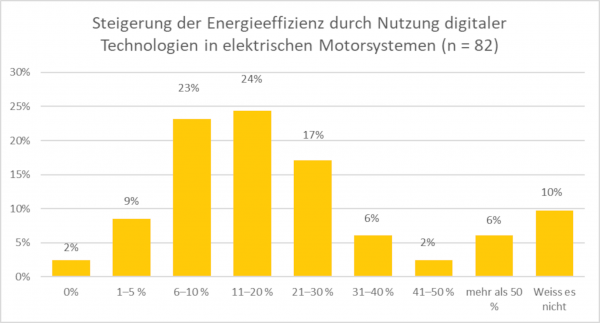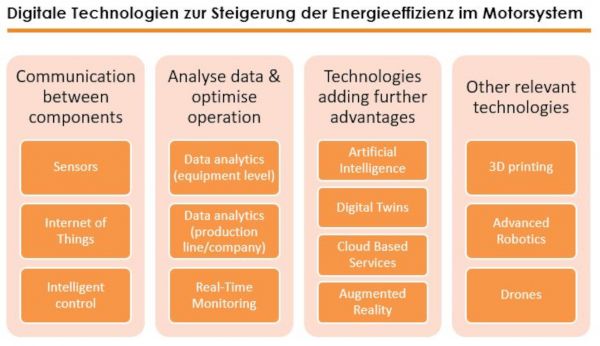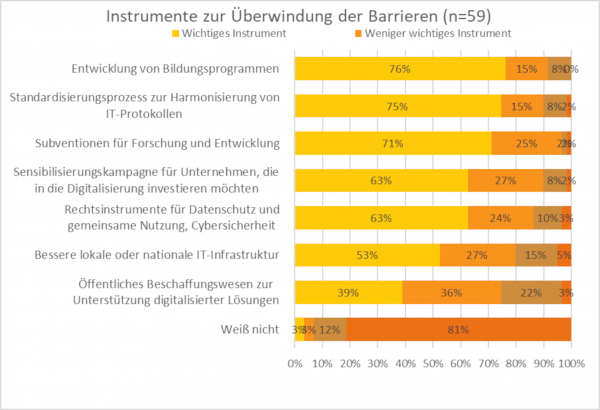IEA 4E: Annex Electric Motor Systems. Working period 2019 - 2021
Short Description
The aim of the project was to identify trends, stakeholders and new developments in the field of Industry 4.0 and electric motor systems, to document case studies and to present the energy consumption effect as well as to identify or develop possible barriers and policy recommendations.
For this purpose, web research was conducted, scientific papers and presentations were analysed, an online survey and two workshops were held.
The following technologies were categorized by definition, description and application in electric motor driven systems: Smart sensors, internet of things, smart control, data analytics on level of electric motors and of production line, real-time monitoring, digital twins, cloud services, artificial intelligence, and augmented reality. Advanced robotics, drones and additive manufacturing were also described.
The main results of the online survey were:
- On average, respondents estimate the increase in energy efficiency of electric motor-driven systems associated with the use of digital solutions to be around 18%.
- Industrial companies currently use mainly smart sensors, intelligent control and continuous monitoring as digital technologies in connection with motor-driven systems. These three technologies will also have the greatest impact on future energy savings potential.
- Increased production efficiency, more flexibility and higher plant availability are the main benefits. In contrast, increased risk of failure and higher implementation costs were cited as the main disadvantages.
- Lack of qualified personnel and high investment costs are the main obstacles, good technical solutions for cybersecurity and availability of qualified personnel are the main requirements.
- About three quarters of respondents consider the development of educational programs, the standardization process to harmonise protocols, and subsidies for research as important policy tools to overcome the above obstacles.
The most important findings of the two workshops were that, on the one hand, machine data cannot be read out independently of the manufacturer, the higher efficiency of individual components does not yet make the entire system more efficient, and there is a lack of showcase examples for the use of digitisation to increase energy efficiency in industry.
On the other hand, digitisation could provide solutions to significant problems (oversizing of motors, supplying machines outside operating hours, lack of knowledge about essential data).
Key players and programs in Austria were surveyed and are listed in this report. Furthermore, two use cases for the application of digitalization technologies in electric motor systems with demonstrable savings effect were described.
Project Images
Terms of use: The pictures listed underneath the header “Project Pictures” originate from the projects in the frame of the programmes City of Tomorrow, Building of Tomorrow and the IEA Research Cooperation. They may be used credited for non-commercial purposes under the Creative Commons License Attribution-NonCommercial (CC BY-NC).
Participants
Australia, Austria, Denmark, European Commission, Netherlands (lead), New Zealand, Sweden, Switzerland, United States
Contact Address
Österreichische Energieagentur
Mag. DI Konstantin Kulterer
Mariahilfer Straße 136
A-1150 Wien
Tel.: +43 (1) 586 15 24-114
E-Mail: konstantin.kulterer@energyagency.at



